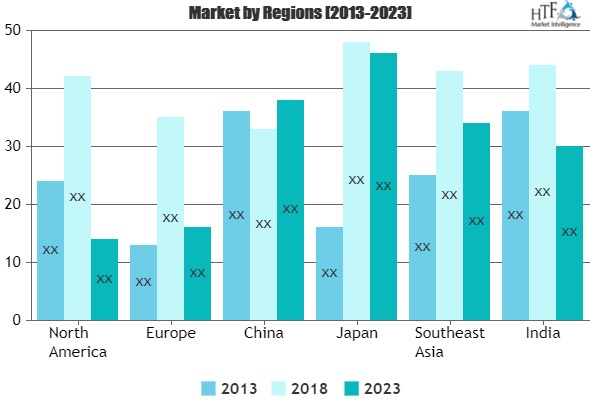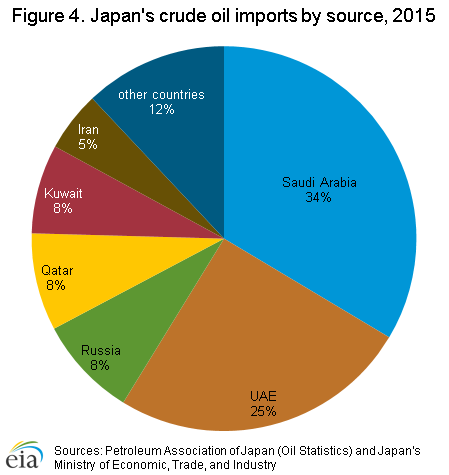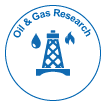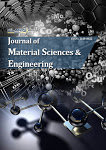


Conference Series LLC Ltd organizes conferences around the world on all Petroleum and chemical subjects including oil and its related fields. Here we are happy to invite all Chemical and chemistry researchers/professors/ industrialists/ students to join our “22nd International Conference on Advanced Materials and Petrochemicals " scheduled to be held in Tokyo, Japan during December 14-15, 2020.
Details of Petrochem Research 2020, London, UK.
Conference series LLC Ltd. invite all the participants across the globe to attend the "22nd International Conference on Advanced Materials and Petrochemicals” (PETROCHEM RESEARCH 2020) scheduled during December 14-15, 2020 Tokyo, Japan
Petroleum engineering conference directs towards addressing main issues as well as future strategies of global energy industry. This is going to be the largest and most promising international conference where oil and gas engineering professionals as well as decision makers will come to discuss and debate on various aspects of the challenges, risks and investment opportunities throughout the complete integrated energy and utilities supply chain.
Conference series LLC Ltd. Organise 1000+ Global Events Every Year across USA, Europe & Asia with support from 1000 more scientific societies and Publishes 700+ Open access journals which contains over 100000 eminent personalities, reputed scientists as editorial board and organizing committee members.
Importance & Scope:
Petroleum engineering is a field of engineering concerned with the activities related to the production of hydrocarbons, which can be either crude oil or natural gas. Exploration and Production are deemed to fall within the upstream sector of the oil and gas industry. Exploration, by earth scientists, and petroleum engineering are the oil and gas industry's two main subsurface disciplines, which focus on maximizing economic recovery of hydrocarbons from subsurface reservoirs. Petroleum geology and geophysics focus on provision of a static description of the hydrocarbon reservoir rock, while petroleum engineering focuses on estimation of the recoverable volume of this resource using a detailed understanding of the physical behaviour of oil, water and gas within porous rock at very high pressure.
The combined efforts of geologists and petroleum engineers throughout the life of a hydrocarbon accumulation determine the way in which a reservoir is developed and depleted, and usually they have the highest impact on field economics. Petroleum engineering requires a good knowledge of many other related disciplines, such as geophysics, petroleum geology, formation evaluation (well logging), drilling, economics, reservoir simulation, reservoir engineering, well engineering, artificial lift systems, completions and oil and gas facilities engineering.
Recruitment to the industry has historically been from the disciplines of physics, chemical engineering and mining engineering. Subsequent development training has usually been done within oil companies.
Why to attend?
Petroleum engineering conference aims at multi-disciplined audience with diverse commercial, technical, corporate, operations, planning sectors of the upstream oil and gas engineering services. Meet Your Target Market with members from around the world focused on learning and sharing about Upstream Scientists/Engineers; this is your single best opportunity to reach the largest assemblage of participants from the global Oil and gas engineering industry. Conduct demonstrations, distribute information, meet with current and potential customers, make a splash with a new product line, and receive name recognition at this 3-day event. World-renowned speakers, the most recent techniques, tactics, and the newest breakthroughs in the upstream sector of oil and gas engineering are hallmarks of this conference.
Target Audience:
-
Petroleum Engineers
-
Scientists, Researchers & Technical Staff from petroleum engineering field.
-
Professors, Students & Delegates from petroleum engineering Department
-
The people who are specialized with geologists, geophysicists, reservoir engineers, production engineers, Chemical Engineers.
-
Production engineers are the Potential Exhibitors for the Respective Conferences.
-
The American Institute of Mining, Metallurgical, and Petroleum Engineers, Geologists associations, US Oil and Gas Association, The Society of Petroleum Engineers.

There are different requirements to obtain a Visa to enter Europe or other countries. Meeting all visa and customs requirements is an individual responsibility of each participant. Please consult the European Embassy in your country to find out whether you require a visa, and if so, what requirements are set forth for obtaining it. Some embassies may request a conference attendee to present a letter from the Conference to verify their intentions to attend that specific conference. It may also be necessary to verify that the requester has paid the registration fee in full.
Visa applications are currently subject to a greater degree of scrutiny than in the past. Many applicants may be required to appear in person for an interview as a part of the visa process. Applicants affected by these procedures are informed of the need for additional screening at the time they submit their application and are being advised to expect delays. Therefore, attendees should be advised to apply no later than 3 months prior to the conference.
Conferenceseries LLC Ltd guidelines for providing visa letters are as follows:
Visa letters should only be issued to:
-
People the committee knows
-
Speakers/Presenters
-
Committee members
-
Attendees who have paid their registration fee in full or as decided by the committee members
Visa letters should state the following facts:
-
Conference title, dates and location
-
That the requester has paid the required registration fee in full
-
Verify that the credit card clears before providing letter
-
If they are either a committee member, speaker or presenter
To simplify the request process for the attendees and organizers you need to request for visa letters for the conference once you are done with registration. Official invitation letter along with payment receipt will be mailed to you within 24-48 hours of your confirmation.
For any queries feel free to send us an email at petrochemicals@scimeetings.com and we shall assist you with more information.
Conference series LLC LTD gives a good opportunity and invites global participants of Plant Researchers to the Plant Science & Physiology Conference in Osaka, Japan this year 2020. The event will mainly focus on the Advanced Materials Chemical & Petroleum Engineering is a field of engineering concerned with the activities related to the production of hydrocarbons, which can be either crude oil or natural gas. Exploration and Production are deemed to fall within the upstream sector of the oil and gas industry. Exploration, by earth scientists, and petroleum engineering are the oil and gas industry's two main subsurface disciplines, which focus on maximizing economic recovery of hydrocarbons from subsurface reservoirs. Petroleum geology and geophysics focus on provision of a static description of the hydrocarbon reservoir rock, while petroleum engineering focuses on estimation of the recoverable volume of this resource using a detailed understanding of the physical behaviour of oil, water and gas within porous rock at very high pressure.
The combined efforts of geologists and petroleum engineers throughout the life of a hydrocarbon accumulation determine the way in which a reservoir is developed and depleted, and usually they have the highest impact on field economics. Petroleum engineering requires a good knowledge of many other related disciplines, such as geophysics, petroleum geology, formation evaluation (well logging), drilling, economics, reservoir simulation, reservoir engineering, well engineering, artificial lift systems, completions and oil and gas facilities engineering.
Recruitment to the industry has historically been from the disciplines of physics, chemical engineering and mining engineering. Subsequent development training has usually been done within oil companies.
Why Japan?
Energy in Japan refers to energy and electricity production, consumption, import and export in Japan. The country's primary energy consumption was 477.6 Mtoe in 2011; a decrease of 5% over the previous year. The country lacks significant domestic reserves of fossil fuel, except coal, and must import substantial amounts of crude oil, natural gas, and other energy resources, including uranium. Japan relied on oil imports to meet about 84 percent of its energy needs in 2010. Japan was also the first coal importer in 2010, with 187 Mt (about 20% of total world coal import), and the first natural gas importer with 99 bcm (12.1% of world total gas import).
While Japan had previously relied on nuclear power to meet about 30% of its electricity needs, after the 2011 Fukushima Daiichi nuclear disaster, all nuclear reactors were progressively shut down for safety concerns. Since then, ÅŒi Nuclear Power Plant's reactors 3 and 4 were restarted on 14 March 2018, and 9 May 2018, respectively. On 11 August 2015, and 1 November 2015, the two reactors at the Sendai Nuclear Power Plant restarted. Following the Fukushima disaster, the general public has opposed the use of nuclear energy.



























